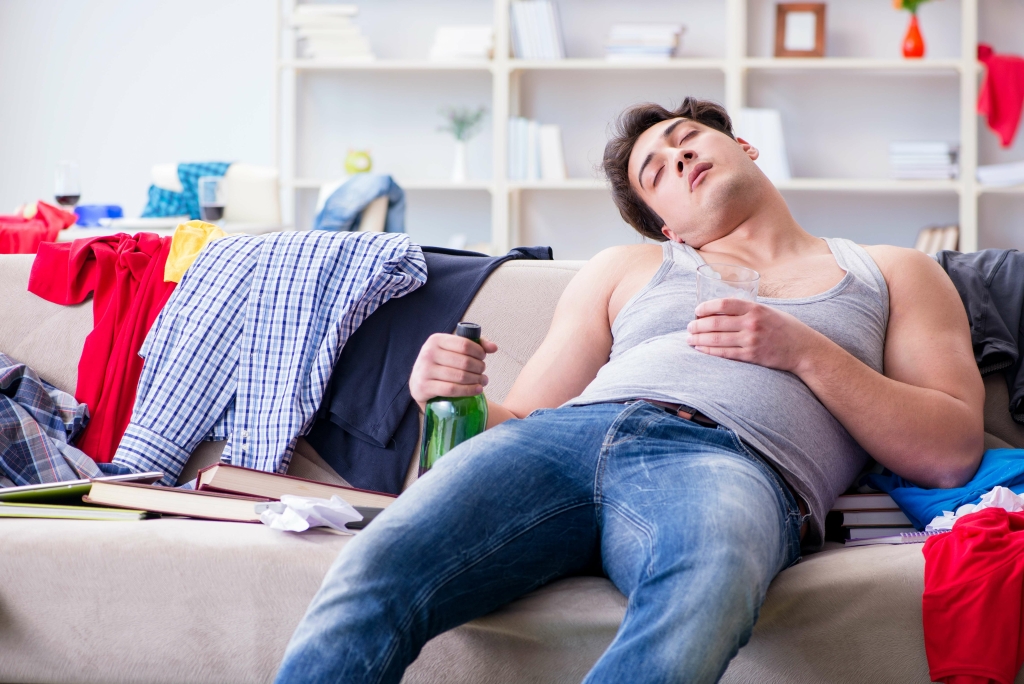Understanding how alcohol interferes with your body’s natural sleep process is a crucial first step toward getting the truly restorative rest you deserve. Let’s look at two of the most significant sleep problems tied to drinking. In order to improve sleep quality and break the reliance on alcohol for falling asleep, it is important to establish good sleep hygiene practices. This involves adopting habits and creating an environment that promote restful sleep. Two key aspects of sleep hygiene are establishing a bedtime routine and creating a sleep-friendly environment. Alcohol is often perceived as a convenient way to induce sleep, as it can make individuals feel drowsy.
- Implement relaxation techniques such as deep breathing, progressive muscle relaxation, or guided imagery to help your body and mind unwind before bed.
- Alcohol has sedative effects, so it may not immediately look like a culprit for poor sleep.
- You might also experience more intense or stressful dreams, leaving you feeling emotionally drained instead of refreshed when your alarm goes off.
- It suppresses REM sleep, the most restorative sleep stage.
- Relying on alcohol for sleep poses several broader health risks beyond poor sleep quality.
- Practicing good habits to help you get the best night’s sleep is called ‘sleep hygiene’.
Create A Relaxing Bedtime Ritual:

Beyond sleep, consistent alcohol consumption for this purpose can have negative effects on physical health. It can impact liver function, contribute to cardiovascular issues, and may increase the risk for conditions like chronic pain. As alcohol is metabolized and eliminated from the body during the night, a “rebound effect” occurs. This rebound is characterized by heightened wakefulness, increased anxiety, and fragmented sleep. Individuals may experience difficulty staying asleep, frequent awakenings, or early morning wakefulness, sometimes referred to as alcohol-induced insomnia. The initial sedative effect https://nurtradeint.com/facts-on-how-methadone-can-affect-your-emotional/ of alcohol can create a misleading impression of improved sleep, leading many to use it as a sleep aid.
Dimenhydrinate Addiction: Risks, Signs, and Treatment
“After a few months, the brain will begin to return to health,” says Dr. Abramowitz. Your alcohol-induced anxiety levels have likely stabilized, too. Your sleep cycle is continuing to improve, so you’re getting even more REM sleep and feeling more rested. Herbal supplementation or lifestyle modifications such as exercise can also be effective in improving your quality of sleep. Ashwagandha and chamomile are both herbal supplements that help sooth stress away and reduce anxiety levels throughout the day so that you feel relaxed come time for lights out.
Is a Nightcap Before Bed Still Okay?
It might sound a little too easy, but adjusting your evening light exposure can dramatically improve your sleep quality. Let’s dig into why alcohol affects your sleep patterns and how to recover your natural rhythm. We’ll also go over practical steps you can start using tonight. Please let me know if you are interested so we can discuss. When I quit drinking, I was prescribed a benzodiazepine called Ativan.
Sleep Quality vs. Sleep Quantity: What Matters More?
By working closely with a sleep specialist, you can receive expert guidance and support in overcoming your reliance on alcohol as a sleep aid. In the quest for improved sleep, many individuals turn to alcohol as a quick solution. However, the relationship between alcohol and sleep is complex and often misunderstood. Developing a bedtime routine that promotes Alcoholics Anonymous relaxation and reduces reliance on alcohol is not only beneficial for your sleep quality but also crucial for long-term health and well-being.

- Alcohol’s relationship with sleep is complex and paradoxical.
- If you are one of the nearly two thirds of Americans who drink alcohol, chances are, you’ve had a drink in the hours before bedtime.
- As for benzodiazepines, I have a very nuanced view of them.
- Poor sleep can lead to increased alcohol consumption as a coping mechanism, which in turn can further disrupt sleep patterns.
- In order to improve sleep quality and break the reliance on alcohol for falling asleep, it is important to establish good sleep hygiene practices.
Consistency matters more than perfection – choose activities that feel right for you and practice sleep without alcohol them regularly. Soon, you’ll drift off naturally without reaching for that nightcap. Before you know it, you’ll be sleeping like a log without needing a drop of alcohol! You’ll learn that the days where you can’t sleep without alcohol are just a thing of the past.